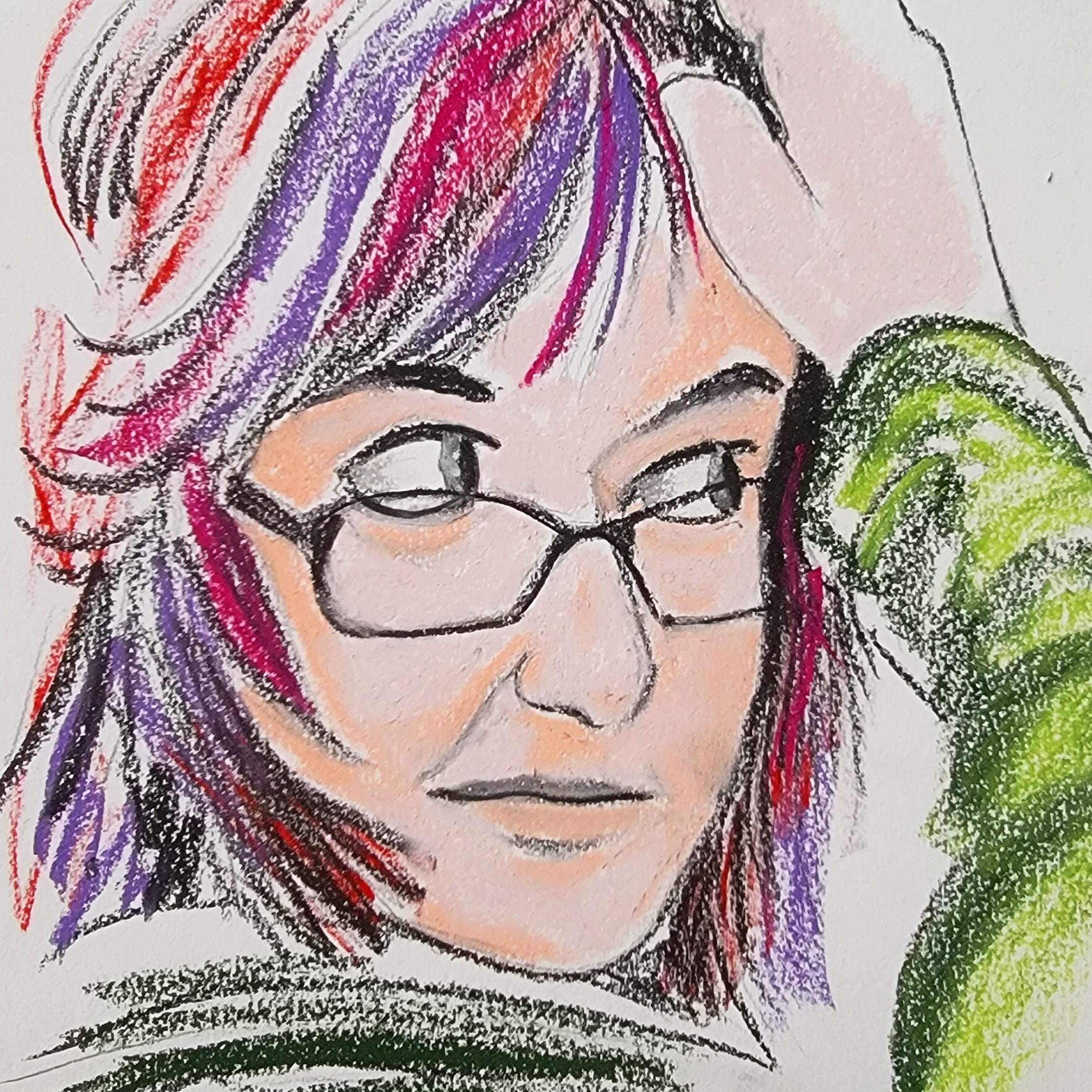Yesterday I finished “My Stroke of Insight” and I just want to put it on my list of 100% recommend regardless of who or what you are. Great book. Now it irritates me when people give vague blanket support for something, so I’ll give some reasons.
I am the sort of person that is very curious about the things that scare me. The more dangerous, the more I want to know. So I could see the description of something very dangerous and damaging disturbing people, but I support the book anyway.
Because of her stroke experience, she was able to gain an insight into the utility of different parts of her brain. Not in a theoretical sense, but in an experiential sense. Once I was told what to look for, I was able to notice the different perspectives balancing in my mind.
It has changed my way of looking at many different thought patterns. Metacognition, thoughts about thoughts, is one of my hobbies. But that’s not what I found most applicable to myself and my disease.
Specifically, I want to discuss the middle part of the book. The part about the experience of the stroke and the way the brain shut off made me think a lot about the way I think during different phases of my bipolar swings.

The main takeaway I had from that is that my bipolar swings are neural stress, and I need to respect my need for sleep and relaxation when I start feeling out of whack. My brain needs sleep and meditation and study just like my muscles need rest and exercise and massage.
I feel so trite saying it like that, but people don’t seem to respect mental issues. Maybe the problem is that I didn’t respect my own mind and thought that I could be the person I wanted to be if I just tried hard enough.
That’s like trying to do 100 pull-ups without ever working your way up to it. But when I’m going through a swing, it’s like trying to do 100 pull-ups with a strained shoulder. My brain, just like my body, needs rest to recover from damage, but then progressive strain to build up toughness.
I kept injuring myself and then trying harder, and falling harder, and wondering why I kept failing. When people encourage someone to start a gym routine, they understand it’s progressive acheivement. But somehow for mental health it should be 40 hour work weeks, 5 days 8 hours a day productivity minimum.

If you fail at that, you’re disabled. No working your way up, no progressive increases after a mental health crisis. If you have a job, they give you whatever time off they allow. But once that’s done, they expect 100%. Black or white, able or disabled.
So I was always pushing myself through my down swings. I was forcing myself to perform normally, and when my brain would scream for rest, I would just push harder. Until I broke. It didn’t take too many times going through that before I lost faith in myself.
Between “Behave” and “My Stroke of Insight” I truly had an awakening of mind and spirit. And body! In “Behave” there was a very chronological explanation of a cell’s understanding of a change of environment, and an example reaction to the environment, utilizing DNA to make a particular protein that will help with the situation.
In that way, different people with the same DNA can have different thoughts, brains, and bodies due to different circumstances causing different choices, which cascade into a whole different person. These changes can even be inherited! I don’t mean identical twins, here, I mean myself between the age of 19, 24, and 31 all had different bodies, brains and spirits, and at each time it was primarily because of things I had chosen. And even with the bipolar symptoms, the main difference in my life and feelings and bodies were my choices.
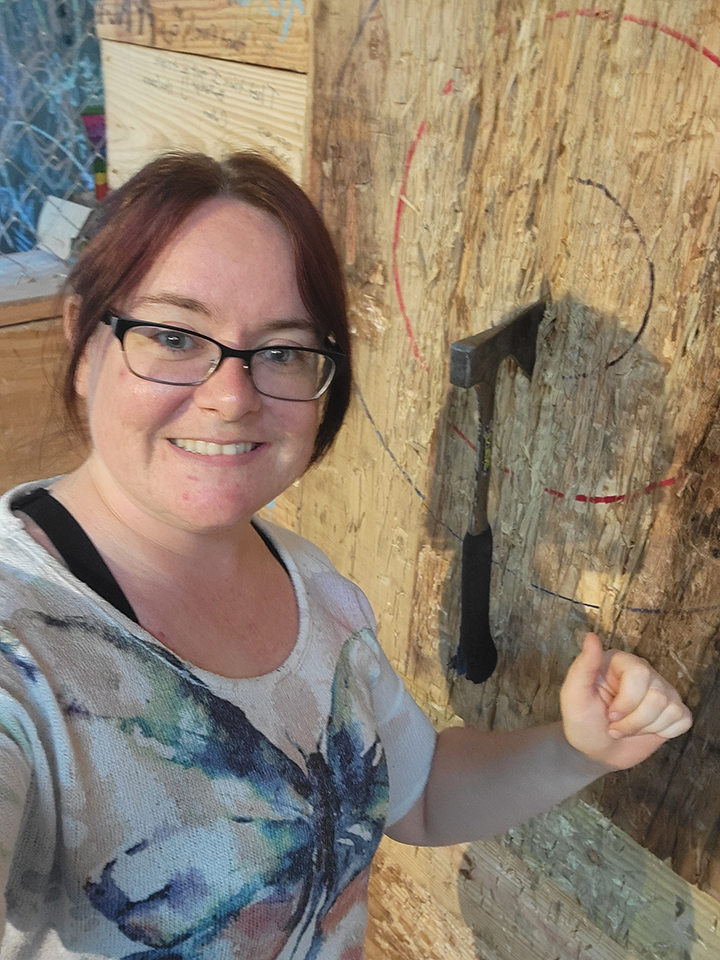
So, with so much cell activity going on in my body every day in response to my sunlight exposure, my sleep quality and bed time, my breakfast, and my exercise, just to name a very few! I have so much more control over who I am and what I am than I ever considered. See, not only do I create my muscles by using them and feeding them, I create my brain by using it and feeding it too! In telling myself who I am, I create myself.
I feel this more deeply than most, thanks to the bipolar giving me a new set a neurochemicals every day. So I wake up and I tell myself I’m wonderful, every part of me is doing a great job and set to work thinking positive thoughts and indulging in daydreaming and my favorite music.
When I’m stressed and I get a little manic, I put on dance music and reach out to some friends I haven’t talked to in a while, and give myself permission to really lean into it and feel good (while staying sober, eating healthy food, and listening to the advice of my husband about what is and is not a good idea).
Then, once the high is over, once the more ‘balanced’ slide is over, and I’m feeling groggy and slow and emotional, I lean into it. I give myself a chance to sleep. I take a day off of work and go for a long walk in a green space. I listen to sad music and do some moody paintings and brood. It might take time, but fighting it just makes it take longer.
Fighting it makes me feel worse. I still tell myself I’m doing great. I still tell myself all of me is right where it needs to be, and last week we did excellent, and next week will be better. It just takes time.
In that book Jill Taylor talks about her left hemisphere coming up with negative moods. Ego, pride, jealousy all come from the left hemisphere. The right hemisphere says we are all equal cosmos confined within a squishy body, at one with all fellow children of mother earth. For so many years I felt groggy, sleepy, emotional, dizzy when I was down and my left brain would be so angry that I couldn’t work, it would come up with all sorts of insults and throw a righteous fit about it.

It was loud and petulant and my brain would be so dizzy and shocked it couldn’t defend itself. My identity couldn’t withstand the onslaught and it would crumble every time I fell. I would try to distract myself. I would try to dampen the pain. I would take my meds religiously because maybe if I never felt down again I would love myself.
But the thing about thinking something every second of every day for half your life, is it seems true the other half too. Even when everything in the world proves its false, it still feels true because it’s just so comfortable. Like the bed of nails you’ve laid in for years.
The thing is, I told this story of myself as the potential star, anything short of fantastic was a moral failing for not trying hard enough. This unwinnable constraint was the framework within my brain. Every breath I took, part of my brain was evaluating whether it was good enough or yet another disappointment.
It took a long time, it took a lot of work and reexamining myself and simply convincing my left hemisphere that I didn’t have to be a star every moment of every day. All I had to be was myself. I knew what I wanted to do, but that nagging self-doubt was what had been standing in my way.

I had to spend a long time listening to my right brain, which knew I was a shining being of light just because I was alive and trying. I had to listen to my loved ones. I had to make healthy choices not because I was bad and didn’t deserve cake but because I was worthy of health.
It was really lovely hearing someone lay out how they felt when they got all of their judgments removed from their thoughts. Jill Taylor calls it her right brain, but whatever it is, we all have it. I think that during my childhood I decided that the feeling of oneness and love was naïve and childish, an illusion to grow out of and into the world of responsible anxiety.
But the truth is, all of your brain is necessary. The middle manager, timekeeper, nagging voice is needed to keep track of minutia and day to day life, even for the most dreamy souls. But every day I told myself I wasn’t enough, and my left brain kept score of just how many points I fell behind.
Now I tell myself I’m doing well, and it counts my wins with just as much care and attention. It keeps track of my art, and articles, and ideas. It keeps track of my work projects, and what books I want to read. It looks ahead for exciting things to plan and it looks behind and counts up every success.
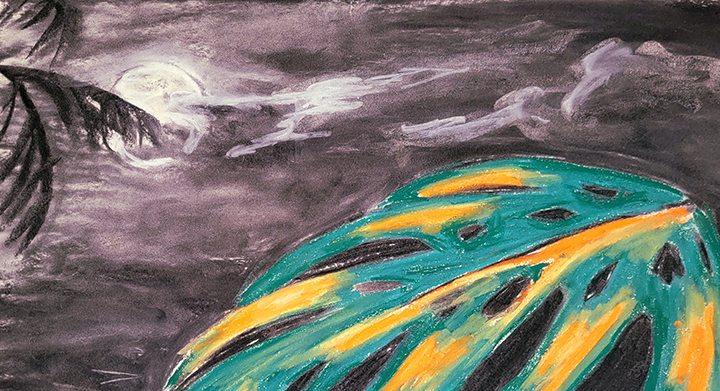
I think the biggest factor in my change of perspective from failing to being enough and feeling grateful instead of afraid was reading Man’s Search for Meaning. That put it in real, life and death terms for me. For so long I had been struggling against dark thoughts and treating myself frivolously and living my life half serious, half suffering.
I had never realized how dangerous that is, how close to falling over the edge I had danced, except on occasion during the long dark nights. I had gone on, half awake, wading through my self hate and terror, trying to be a person. Taking my meds, but never being able to identify the root of my pain.
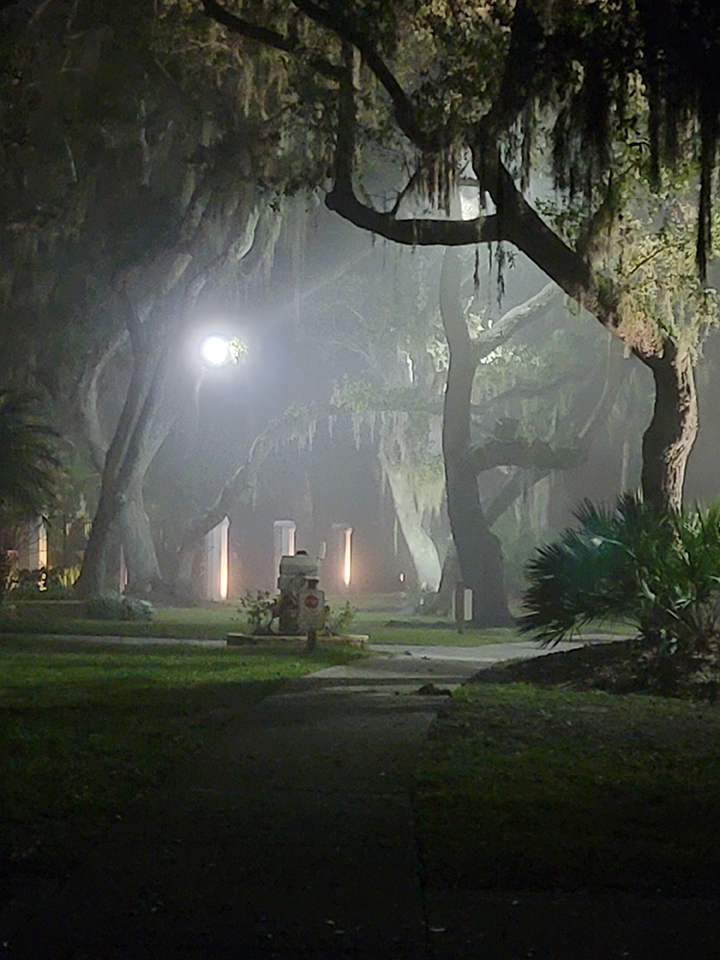
It’s easy to get comfortable, to live life half awake. But then I read about people surviving the worst suffering a body and soul can experience, and what kept them moving barefoot through the snow and I realized that I could barely handle quarantine.
I had food, shelter, love. But I was weak. My self worth was conditional. My mood was dependent on my abilities and energy. My will to live was withered by years of shame and torment.
According to Man’s Search for Meaning, meaning and strength can be found in anything, as long as you have a perspective of hope and appreciation. I looked at myself and my life and I realized I had no gratitude. I had no hope.
Day to day I didn’t trust myself to be able to take care of my life. I didn’t trust myself to be happy or sane or capable. I had never thought of this as being a pathology, the cause of the pain I was feeling that had to be treated.
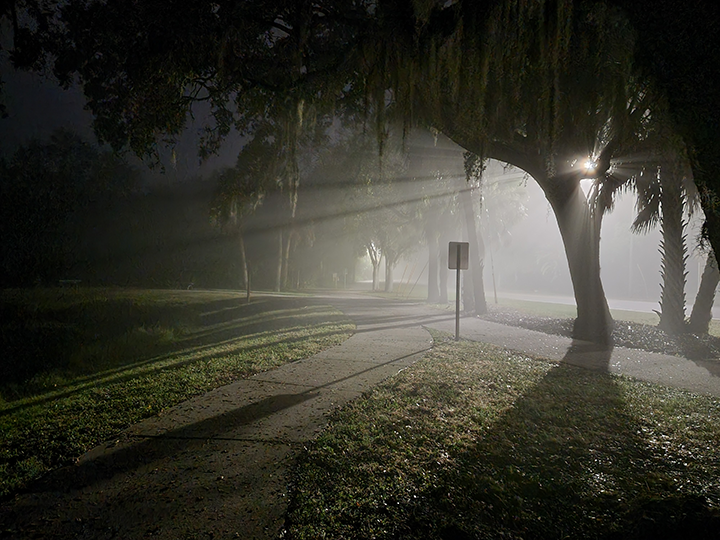
I understood the lack within myself, the need for gratitude, and I looked outside of myself for answers. I would write gratitude lists and list the things in my life that I appreciated. It would feel hollow because it was like holding water in a sieve.
I was not someone that could feel grateful because I felt unworthy of the good things I had. I felt unworthy of happiness, love, acceptance and even safety. Every outside intervention fell flat at my internal wall of self hate.
All through these years of pain and bipolar symptoms I clung tooth and nail to life, trying everything I could to cling to the world outside of the chaos in my mind. Then during quarantine I looked at the world and it finally dawned on me that there was nothing there to hold onto.

I was grasping at empty air, a shared hallucination, castles in the sky held up by nothing but our belief in them. My eyes were opened and I realized that the only thing I had, the only thing I would ever truly have is my mind. My thoughts and my body that carries me through the world are the only things I have and it is enough. It had always been enough.
I felt as though I had been on a small boat, tied to the dock through the storm. In my panic through the years I had tied myself tighter and tighter against the waves, fighting the rise and fall of the water, forgetting that a boat is meant to float. Then I finally trusted. I trusted my boat, I trusted in my strength and I cut the ties and I spun free of the dock for the first time.

It took time to figure out how to sail on my own, but I realized the rise and fall of water was not the enemy. It was just my nature. But my boat is seaworthy and I know where to go during a storm. The medications make the waves a little smaller, but I’ll never sail calm waters for long. Thanks to that, I’ll go places and see things that other people don’t.
It’s all a matter of perspective.
